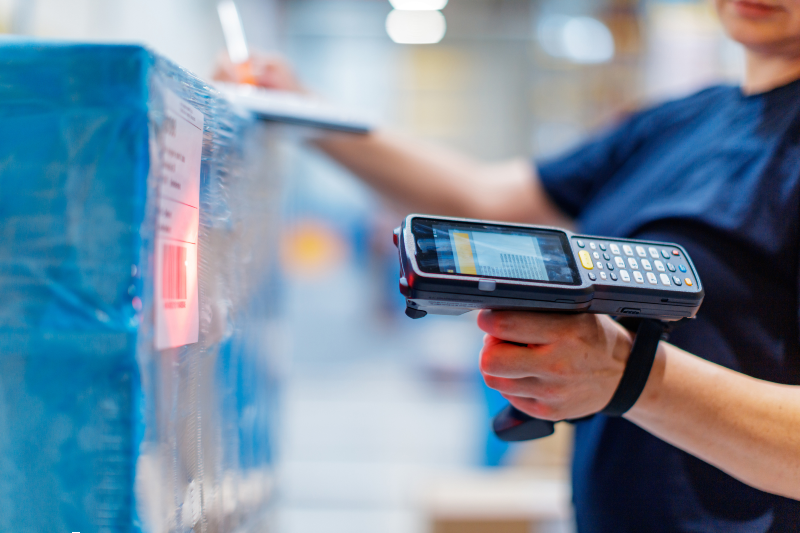Heavy-Duty Barcodes Scanners Built for Industrial Needs
Heavy-Duty Barcodes Scanners Built for Industrial Needs
Blog Article
Choosing the Right Barcode Scanner for Your Organization Demands
Choosing the suitable barcode scanner for your service needs a nuanced understanding of your specific functional requirements and ecological problems. Aspects such as scanner kind, rate, and compatibility with existing systems play a pivotal role in establishing the right option.
Recognizing Barcode Scanner Kind
When it comes to selecting a barcode scanner, recognizing the various types available is essential for meeting specific organization needs. Barcode scanners can be classified into several kinds, each developed for various applications and atmospheres.
Handheld scanners are the most usual, using mobility and ease of use, making them ideal for retail and supply monitoring. They usually connect by means of USB or Bluetooth, providing versatility in procedure. Fixed-mount scanners, on the other hand, are designed for high-volume scanning applications, often discovered in setting up lines or checkout counters. These scanners are placed in a stationary placement, enabling fast scanning of several products in sequence.
An additional type is the mobile computer system, which integrates scanning capacities with calculating power. These devices are excellent for field operations or stockroom monitoring, enabling information collection and real-time supply tracking. Furthermore, there are commercial scanners that are built to withstand severe settings, such as extreme temperature levels or direct exposure to dust and wetness.

Trick Attributes to Take Into Consideration
What necessary features should companies prioritize when picking a barcode scanner? Primarily, scanning speed is crucial, as faster scanners improve functional performance, specifically in high-volume atmospheres. The scanner's capability to review numerous barcode styles is likewise important; guarantee it supports prominent kinds like QR codes, UPC, and Code 128 to accommodate diverse supply items.
Durability is another vital function, particularly for companies in rugged settings. Search for versions that are built to endure drops, dust, and moisture. Additionally, consider the connectivity choices available; whether you like USB, Bluetooth, or Wi-Fi, the ideal connection can improve assimilation with existing systems.

Assessing Your Organization Setting
To effectively select a barcode scanner, companies must take supply of their details functional setting. This analysis includes evaluating the physical design of the work area, the nature of the items being scanned, and the typical problems under which scanning occurs. As an example, a retail atmosphere might need portable scanners that can swiftly refine deals at the checkout, while a stockroom setting could gain from ruggedized scanners designed to sustain harsher conditions.
Furthermore, consider the quantity of scanning called for. High-throughput atmospheres might demand advanced scanning innovations, such as fixed-position scanners or mobile phones that can run effectively in fast-paced scenarios. The integration abilities with existing stock administration systems likewise play a critical role; make sure the selected scanner can seamlessly get in touch with software systems being used.
In addition, examine the potential for development and scalability. A scanner that satisfies existing needs may not be sufficient as business expands. By extensively examining these variables, businesses can select a barcode scanner that not just meets instant needs however likewise sustains long-lasting operational efficiency and adaptability. This critical strategy eventually adds to smoother procedures and enhanced efficiency.
Budgeting for Your Scanner
Having actually examined the operational environment and recognized the particular demands for a barcode scanner, the next action includes mindful budgeting to ensure a clever financial investment. Establishing a budget begins with figuring out the general costs connected with the scanner, consisting of first acquisition price, functional expenses, and prospective upkeep charges.
When choosing a barcode scanner, think about the variety of readily available options, from handheld see this website devices to fixed-position scanners, as costs can differ significantly. It is important to balance expense with performance; choosing an extra cost effective model might result in increased operational inadequacies if it does not fulfill your service requirements.
In enhancement to the hardware, variable in costs connected to software program, training, and potential upgrades. While it may be alluring to minimize click to find out more ahead of time expenditure, purchasing a high quality scanner that lines up with your operational requirements can produce lasting financial savings through improved efficiency and reduced downtime.
Finally, think about the complete price of ownership, which includes the scanner's life-span and potential resale worth. By diligently preparing your budget, you can ensure that your financial investment in a barcode scanner will certainly enhance your operational performance and economic performance.
Assimilation With Existing Equipment
Incorporating a barcode scanner with your existing systems is essential for maximizing its performance and making certain seamless procedures. barcodes scanners. A well-integrated scanner enhances operations performance, minimizes errors, and increases data handling. When choosing a barcode scanner, consider compatibility with your present software program and hardware framework, including your stock management systems, point-of-sale (POS) systems, and business resource planning (ERP) options
Evaluate whether the scanner uses common procedures such as USB, Bluetooth, or Wi-Fi, which can promote simple combination. Additionally, evaluate whether the scanner's software provides APIs or SDKs that enable personalization and integration with exclusive systems. This is specifically important for companies with special functional needs.
Moreover, take into consideration the scalability of the scanning service. As your organization expands, your systems should have the ability to fit additional scanners and deal with boosted data quantities without substantial reconfiguration. Inevitably, purchasing a barcode scanner that effortlessly incorporates with your existing systems will generate long-lasting benefits, enhancing precision, performance, and general performance within your procedures. Make click resources the effort to thoroughly assess your assimilation needs before buying choice.

Conclusion
In final thought, choosing a proper barcode scanner necessitates a thorough examination of numerous aspects, consisting of scanner kinds, crucial attributes, and the details company setting. The right barcode scanner serves as a crucial tool in improving procedures and helping with effective supply management.
Report this page